[Business Impact Analysis] [Detailed Business Processes] [CBF-1]

Detailed Business Processes
CBF-3 Skills Training and Educational Programs
HopeHouse is a Singapore-based charitable organisation that provides residential care and rehabilitation services to male youths who face challenges such as offending behaviours,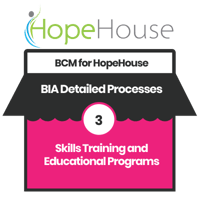
As part of its holistic care model, HopeHouse places strong emphasis on skills training and educational programs, which are fundamental to the long-term development and reintegration of its residents into society.
The critical business function (CBF) discussed in this chapter—CBF 3: Skills Training and Educational Programs—is central to fulfilling HopeHouse’s mission of empowering youths to lead responsible, independent, and productive lives.
These programs equip residents with academic qualifications, vocational competencies, life skills, and digital literacy, all of which are essential for meaningful employment and positive community engagement.
From liaising with schools to providing certification pathways, HopeHouse executes a range of structured initiatives that promote lifelong learning and job readiness.
The continuation of these services, even during disruptive events, is vital to ensuring that the residents’ progress and development remain uninterrupted.
This chapter outlines the key business processes (Sub-CBFs) under CBF 3, highlighting how each contributes to the resilience and rehabilitative goals of the organisation.
It also sets the foundation for continuity strategies to safeguard these essential functions in the event of crises or service disruptions.
Based on the publicly available information from HopeHouse Singapore and the context of their mission—rehabilitation and reintegration of youths through structured residential care and support programs—CBF 3: Skills Training and Educational Programs is a core pillar of their service delivery model.
Here is a detailed breakdown of the Sub-CBFs (business processes) under CBF 3: Skills Training and Educational Programs, tailored to HopeHouse’s operations:
CBF 3: Skills Training and Educational Programs
Ensuring that youths under care receive the necessary education, life skills, and vocational training to support reintegration into society.
Sub-CBF 3.1: Academic Support and School Integration
Description: Coordinating school placements, tuition, and academic performance monitoring for residents.
Examples:
- Liaising with the Ministry of Education and schools for placement or continuation of formal education.
- Organising volunteer tuition sessions for core subjects.
- Monitoring attendance, performance, and behaviour through school reports.
Sub-CBF 3.2: Life Skills Development Workshops
Description: Conducting regular sessions on communication, time management, hygiene, decision-making, and emotional regulation.
Examples:
- Weekly group workshops on anger management and conflict resolution.
- Training in personal finance (e.g., budgeting with allowances).
- Sessions on health, wellness, and nutrition.
Sub-CBF 3.3: Vocational Training and Certification Programs
Description: Facilitating access to skills-based training leading to industry-recognized certification.
Examples:
- Enrolling residents in ITE Skills Certification Courses (e.g., culinary, carpentry, automotive repair).
- Collaborating with training centers like e2i (Employment and Employability Institute) for workshops.
- In-house programs or tie-ups with NGOs offering barista or hairdressing skills.
Sub-CBF 3.4: Digital and Technological Literacy
Description: Teaching residents how to safely and effectively use digital tools, online platforms, and basic IT skills.
Examples:
- Providing computer literacy classes (MS Office, email usage, online forms).
- Educating on responsible social media use and online safety.
- Facilitating access to e-learning platforms and digital resources.
Sub-CBF 3.5: Career Guidance and Job Readiness Training
Description: Preparing youths for employment through counselling, job coaching, and resume/interview preparation.
Examples:
- One-on-one career counselling sessions.
- Resume writing workshops and mock interviews.
- Job shadowing or short-term internships via community partnerships.
Sub-CBF 3.6: Progress Tracking and Individual Learning Plans
Description: Developing and reviewing personalised learning and development plans to ensure tailored progression.
Examples:
- Creating Individual Care and Learning Plans (ICLP) for each resident.
- Monthly reviews and updates with case workers and education coordinators.
- Tracking key learning milestones and certifications achieved.
Sub-CBF 3.7: Partnerships with Educational and Vocational Institutions
Description: Building and maintaining relationships with external organisations to expand training opportunities.
Examples:
- MOUs with ITEs, NGOs, and skills training providers.
- Sponsorships or bursaries from foundations and CSR partners.
- Participation in national-level programs (e.g., SGUnited Skills).
These Sub-CBFs collectively support HopeHouse's mission of empowering youths through education and skill-building, which is essential for successful rehabilitation and reintegration.
CBF 3: Skills Training and Educational Programs
Ensuring that youths under care receive the necessary education, life skills, and vocational training to support reintegration into society.
|
Sub-CBF Code |
Sub-CBF Title |
Description |
Examples (Specific to HopeHouse) |
|
3.1 |
Academic Support and School Integration |
Coordinating school placements, tuition, and academic performance monitoring for residents. |
- Liaison with MOE and schools for placements - Volunteer tuition sessions - Monitoring academic progress |
|
3.2 |
Life Skills Development Workshops |
Conducting regular sessions on communication, hygiene, time management, and emotional regulation. |
- Workshops on anger management, hygiene, time management - Personal finance and wellness training |
|
3.3 |
Vocational Training and Certification Programs |
Facilitating access to vocational and industry-recognized training. |
- ITE Skills Certification Courses - Barista or carpentry workshops - Tie-ups with NGOs or training providers |
|
3.4 |
Digital and Technological Literacy |
Teaching residents how to use digital tools safely and productively. |
- Basic computer literacy classes - Social media safety sessions - E-learning support |
|
3.5 |
Career Guidance and Job Readiness Training |
Preparing residents for future employment through job coaching and interview preparation. |
- Resume writing and mock interviews - Career counseling - Short-term internships or job shadowing |
|
3.6 |
Progress Tracking and Individual Learning Plans |
Developing and monitoring tailored education and training plans for each youth. |
- Individual Care and Learning Plans (ICLP) - Monthly progress reviews - Tracking certifications and milestones |
|
3.7 |
Partnerships with Educational and Vocational Institutions |
Building relationships with external organizations for program expansion and training opportunities. |
- MOUs with ITEs and NGOs - Sponsored programs or bursaries - Participation in national-level skills initiatives |
Summing Up ...
The sub-functions of CBF 3: Skills Training and Educational Programs play a transformative role in the lives of HopeHouse residents, enabling them to build confidence, acquire new competencies, and chart a pathway to a more secure future.
Each Sub-CBF—from academic support to career readiness—serves as a building block in a continuum of care and empowerment.
In the context of business continuity management, these programs must remain operational or recoverable within acceptable timeframes.
Disruptions to training sessions, school access, or vocational partnerships could significantly delay the personal development journey of the residents and impact overall program outcomes.
Therefore, BCM planning for HopeHouse must prioritise the protection and recovery of these functions through robust mitigation, contingency partnerships, and recovery strategies.
By ensuring the resilience of its educational and training services, HopeHouse reaffirms its commitment to nurturing every youth under its care—regardless of external circumstances.
.




![[BCM] [SC] [BIA] MBCO Corporate MBCO](https://no-cache.hubspot.com/cta/default/3893111/0be0c57e-237f-4076-a3df-eb6ed5617050.png)
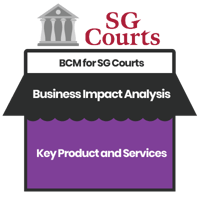
![[BCM] [SC] [E3] [RAR] [T1] List of Threats](https://no-cache.hubspot.com/cta/default/3893111/36925b9f-7e34-450f-b06d-4aed8e2a4ceb.png)

![[BCM] [SC] [E3] [RAR] [T3] Risk Impact and Likelihood Assessment](https://no-cache.hubspot.com/cta/default/3893111/dd636430-8d65-4445-a42d-a3c67f57e9f5.png)
![[BCM] [SC] [E3] [BCS] [T1] Mitigation Strategies and Justification](https://no-cache.hubspot.com/cta/default/3893111/b4270f51-db59-4e76-8516-7a2be65803b2.png)
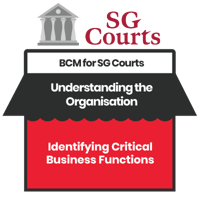
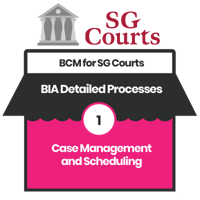
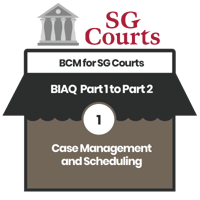
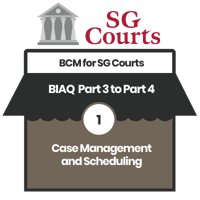
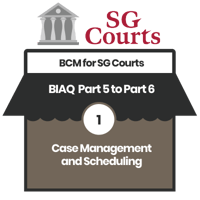
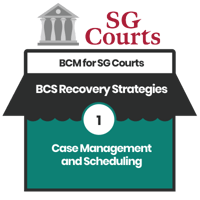
![[BCM] [SC] [E3] [BCS] [T3] [CBF] [1] Minimum Resources Required during a Disaster](https://no-cache.hubspot.com/cta/default/3893111/6de21368-9870-4c29-a4be-068e4e6bc30c.png)
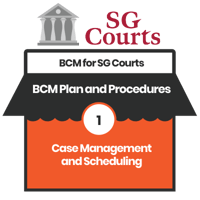


![Register [BL-B-3]*](https://blog.bcm-institute.org/hs-fs/hubfs/hub_generated/resized/19a8306f-6b76-45ff-8585-95111f393aeb.png?width=200&height=56&name=19a8306f-6b76-45ff-8585-95111f393aeb.png)



![FAQ [BL-B-3]](https://blog.bcm-institute.org/hs-fs/hubfs/hub_generated/resized/9b7f5669-8ad6-450b-a98f-5f5d49ebfc8e.png?width=150&height=150&name=9b7f5669-8ad6-450b-a98f-5f5d49ebfc8e.png)
![Email to Sales Team [BCM Institute]](https://blog.bcm-institute.org/hs-fs/hubfs/hub_generated/resized/83ae9ad3-affc-416e-8f51-64218d6d98f2.png?width=100&height=100&name=83ae9ad3-affc-416e-8f51-64218d6d98f2.png)





